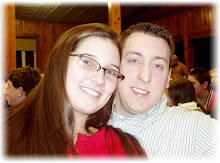“I find that when I think I am asking God to forgive me I am often in reality (unless I watch myself very carefully) asking Him….not to forgive me but to excuse me. But there is all the difference in the world between forgiving and excusing. Forgiveness says ‘Yes, you have done this thing, but I accept your apology; I will never hold it against you and everything between us two will be exactly as it was before.’ But excusing says ‘I see that you couldn’t help it or didn’t mean it; you weren’t really to blame.’ If one was not really to blame then there is nothing to forgive. In that sense forgiveness and excusing are almost opposites. Of course…there may be a mixture of the two….There usually is some amount of excuse, some ‘extenuating circumstances.’ We are so very anxious to point these out to God (and to ourselves) that we are apt to forget the really important thing; that is, the bit left over, the bit which the excuses don’t cover, the bit which is inexcusable but not, thank God, unforgivable. And if we forget this, we shall go away imagining that we have repented and been forgiven when all that has really happened is that we have satisfied ourselves with our own excuses….
When it comes to a question of our forgiving other people, it is partly the same and partly different. It is the same because, here also, forgiving does not mean excusing. Many people seem to think….that if you ask them to forgive someone who has cheated or bullied them you are trying to make out that there was really no cheating or no bullying. But if that were so, there would be nothing to forgive. They keep on replying, ‘But I tell you the man broke a most solemn promise.’ Exactly: that is precisely what you have to forgive. (This doesn’t mean that you must necessarily believe his next promise. It does mean that you must make every effort to kill every taste of resentment in your own heart—every wish to humiliate or hurt him or to pay him out.) The difference between this situation and the one in which you are asking God’s forgiveness is this. In our own case we accept excuses too easily; in other people’s we do not accept them easily enough….One must therefore begin by attending to everything which may show that the other man was not so much to blame as we thought. But even if he is absolutely fully to blame we still have to forgive him; and even if ninety-nine percent of his apparent guilt can be explained away by really good excuses, the problem of forgiveness begins with the one per cent of guilt which is left over. To excuse what can really produce good excuses is not Christian character; it is only fairness. To be a Christian means to forgive the inexcusable, because God has forgiven the inexcusable in you.
This is hard….How can we do it? Only, I think, by remembering where we stand, by meaning our words when we say in our prayers each night ‘forgive us our trespasses as we forgive those who trespass against us.’” (Lewis, The Weight of Glory. San Francisco: HarperSanFrancisco, 1980, pp. 178-183.)
Monday, April 16, 2012
6 Important Words -
Saturday, April 14, 2012
Golden Rule
John Wesley said, “Confirm your love towards one another, and towards all men. And love them, not in word only, but in deed and in truth. "Therefore all things whatsoever ye would that men should do to you, do ye even so to them; for this is the law and the prophets." This is that royal law, that golden rule of mercy as well as justice, which even the heathen Emperor caused to be written over the gate of his palace; a rule which many believe to be naturally engraved on the mind of everyone that comes into the world. And thus much is certain, that it commends itself, as soon as heard, to every man's conscience and understanding; insomuch that no man can knowingly offend against it without carrying his condemnation in his own breast.” (From Wesley, Sermon 30, “Upon Our Lord’s Sermon on the Mount,” text from the 1872 edition - Thomas Jackson, editor)
Ask yourself: Wesley notes that the Golden Rule calls for “mercy as well as justice.” Is there any relationship in which I need to stretch, to grow beyond justice and treat someone else better than justice would demand that I treat them?
